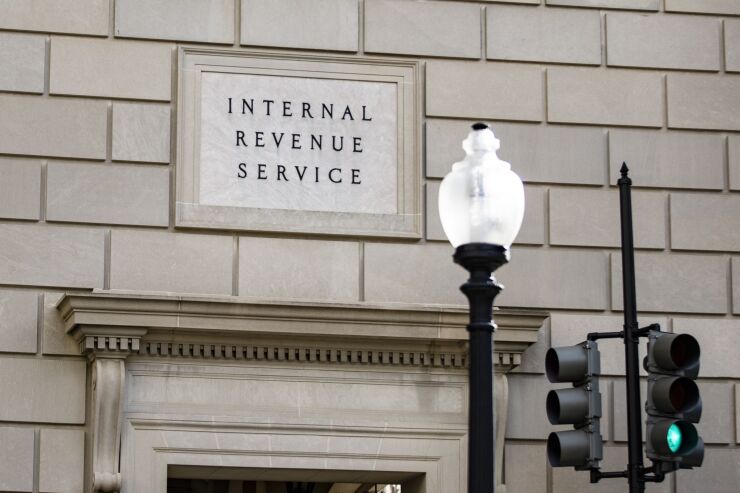The Internal Revenue Service and the Treasury Department issued preliminary guidance Tuesday and intend to issue more detailed guidance soon on the tax treatment of nonfungible tokens, digital collectibles that became popular investment vehicles before the cryptocurrency market plunged last year.
The IRS and the Treasury released
Under the look-through analysis, an NFT is treated as a collectible if the NFT's associated right or asset falls under the definition of collectible in the Tax Code. For example, a gem is considered to be a collectible under Section 408(m) of the Tax Code, so that means an NFT that certifies ownership of a gem is a collectible as well.
An NFT is a unique digital identifier that's recorded through distributed ledger technology, like the blockchain technology underlying cryptocurrencies like Bitcoin and Ether, and can be used to certify authenticity and ownership of an associated right or asset.
Distributed ledger technology uses independent digital systems to record, share and synchronize transactions, the details of which are recorded simultaneously on multiple nodes in a network. A token is an entry of data encoded on a distributed ledger. A distributed ledger can be used to identify ownership of both NFTs and fungible tokens, such as cryptocurrency, as described in

Section 408(m)(2) of the Tax Code includes a specific list of items that constitute collectibles for certain purposes. Acquisition of a collectible by an individual retirement account or individually directed account of a qualified plan is treated as a distribution from the account equal to the cost to the account of the collectible. Typically, collectibles also don't have capital-gains tax treatment that is as advantageous as other capital assets.
The guidance released Tuesday also requests comments on the treatment of NFTs as collectibles. The Treasury Department and the IRS are soliciting comments on any aspect of NFTs that might affect their treatment as collectibles, as well as certain comments specifically set out in the notice. The tax treatment is also relevant for other tax purposes, including the long-term capital gains tax rate under Section 1(h).
The notice also describes how the IRS intends to determine whether an NFT constitutes a Section 408(m) collectible, pending the issuance of that guidance, and requests comments generally on the treatment of NFTs as Section 408(m) collectibles, as well as comments on specific questions listed in the notice.
The notice comes at a time when the NFT market has been seeing a bit of a resurgence after a sharp plunge last year. DappRadar reported that NFT trading volumes increased to $2 billion in February, the highest amount since the crash of several prominent crypto tokens in May 2022.
However, after the failure of Silicon Valley Bank and Signature Bank a little over a week ago, NFT trading volume has plunged once again, according to
While the IRS is planning to issue further guidance on NFTs, at least one tax expert sees the IRS's preliminary guidance as helpful.
"The notice states that the Service will look to see what the NFT actually represents (i.e., its rights and benefits), to determine its characterization – a result that most tax practitioners practicing in the digital asset space had been pushing for," said Tony Tuths, digital asset practice leader and a principal in alternative investments in the tax practice at KPMG LLP, in an email. "If an asset, including an NFT, constitutes a collectible for tax (e.g., work of art, metal, gem, stamp 'or other tangible personal property' specified by the IRS), then (i) the long-term capital gains rate for that asset rises from 20% to 28%; and (ii) the asset is not suitable to be held in an IRA or other qualified retirement account, among other tax effects. It remains an open question whether a piece of digital art can constitute a 'work of art' or whether it need to be tangible. Either way, the notice is very welcome and takes a logical approach to the taxation of NFTs, without rushing to judgement on open issues, but rather, seeking public comment."





